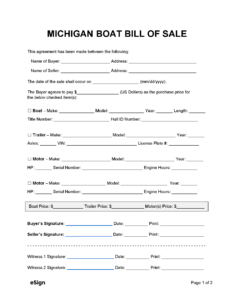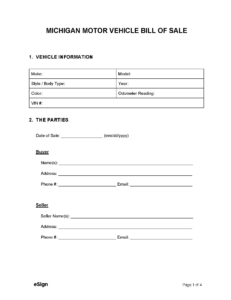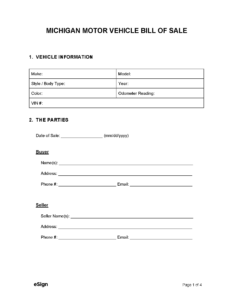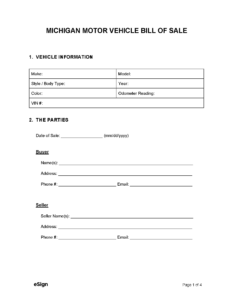Navigating a private sale in Michigan, whether you are buying or selling a used car, a boat, or even a piece of personal property, can feel a bit like stepping into uncharted waters. While the excitement of a new acquisition or the satisfaction of a successful sale is certainly present, there is also the underlying need for security and legal clarity. This is where a well-crafted document becomes not just useful, but truly essential for a smooth and protected transaction.
A bill of sale acts as a legally binding record of the transfer of ownership from one party to another. It provides a clear paper trail, protecting both the buyer and the seller from potential disputes down the line. For Michigan residents, having a specific Michigan bill of sale template ensures that all state-specific requirements and common practices are considered, offering peace of mind for what is often a significant exchange.
Why You Need a Michigan Bill of Sale
When you engage in a private sale, whether you are the person selling an item or purchasing it, a bill of sale serves as your definitive proof. It meticulously records the details of the transaction, safeguarding both parties against future disagreements or misunderstandings. Imagine a scenario where a dispute arises over the agreed-upon price or the condition of the item at the time of sale; without a formal document, resolving such issues can be incredibly challenging and often relies on one person’s word against another’s.
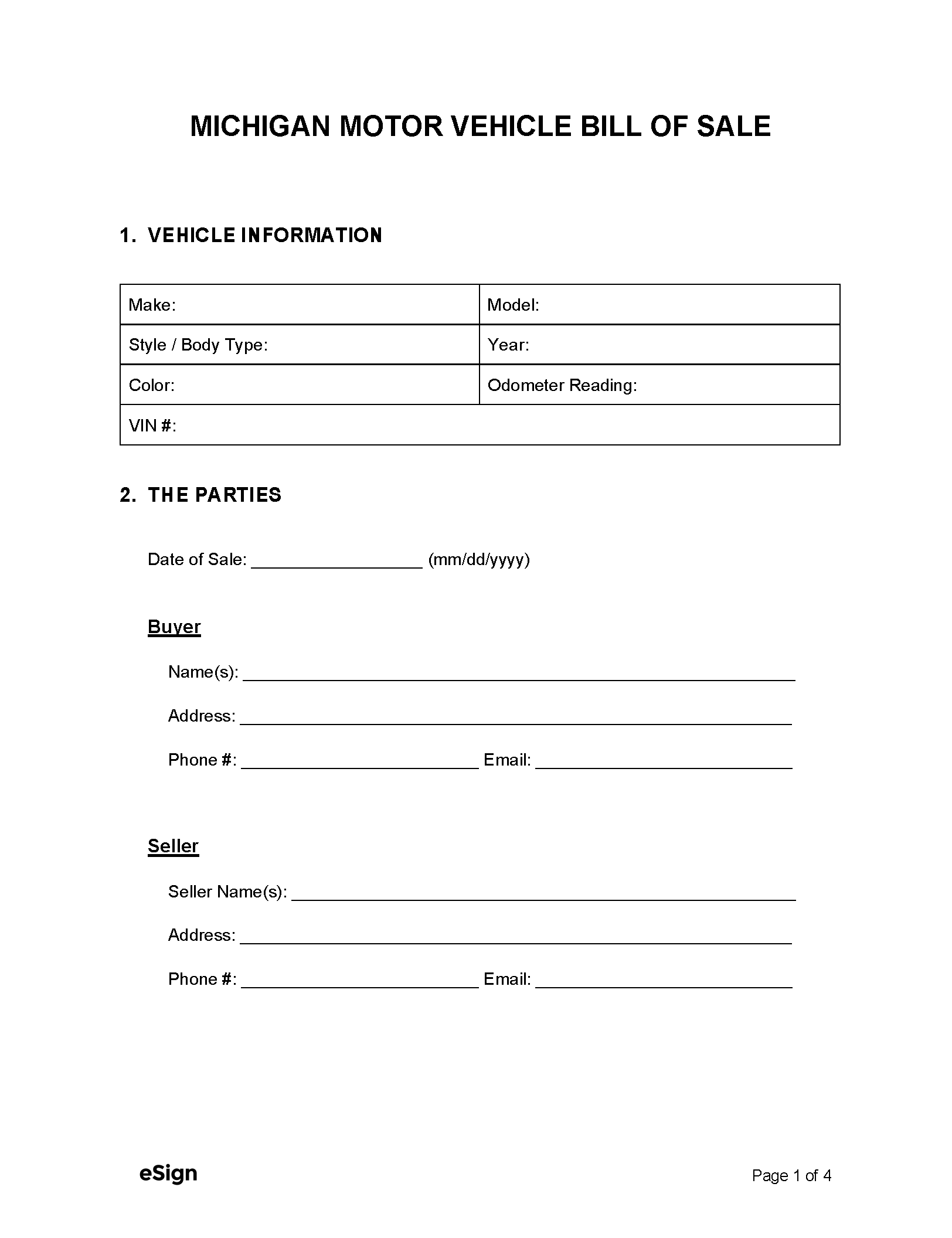
Beyond simply providing proof of sale, this document is crucial for various administrative and legal processes. For instance, when transferring the title of a vehicle or a boat at the Michigan Secretary of State office, they will often require a bill of sale in addition to the signed title. This ensures that the state has an official record of the transaction date and sale price, which is important for calculating sales tax and registering the item in the new owner’s name. It also protects the seller from any liability for the item once it has officially changed hands.
A comprehensive Michigan bill of sale template ensures that all the necessary fields are included, leaving no room for ambiguity. This includes the full legal names and addresses of both the buyer and seller, a detailed description of the item being sold (including make, model, year, vehicle identification number for vehicles, or hull identification number for boats, and any other unique identifiers), the exact purchase price, the date of the transaction, and the signatures of both parties. It also often includes a statement that the item is being sold “as-is,” which protects the seller from future claims regarding the item’s condition after the sale.
In essence, this critical document formalizes the agreement between individuals, turning a casual exchange into a clear, legally sound transaction. It’s an investment in your peace of mind, preventing potential headaches and ensuring that both parties walk away with a clear understanding of the terms and conditions of the sale.
Obtaining and Using Your Michigan Bill of Sale Template
Finding a reliable Michigan bill of sale template is easier than you might think. Many reputable legal document websites, state government resources, or even some automotive and marine dealerships offer accessible templates designed for Michigan residents. When selecting a template, always ensure it is comprehensive and clearly outlines all the essential fields required for a valid transaction. Once you have your template, the process of filling it out is straightforward, but accuracy is paramount to avoid any future complications.
Before you begin filling out the document, gather all the pertinent information for both the buyer and the seller, including their full legal names, current addresses, and contact details. Equally important is collecting precise details about the item being sold. For vehicles, this includes the year, make, model, color, odometer reading, and the all-important Vehicle Identification Number (VIN). For boats, you’ll need the year, make, model, length, and the Hull Identification Number (HIN). Being thorough at this stage prevents errors and omissions that could invalidate the document or lead to misunderstandings.
Once all the information has been accurately entered into the Michigan bill of sale template, both the buyer and the seller should carefully review it. Double-check all spellings, numbers, and dates to ensure everything is correct and reflects the agreed-upon terms. If there are any specific conditions to the sale, such as a particular payment method or an “as-is” clause, ensure these are clearly stated. Both parties must sign the document, and it is highly recommended that each party keeps an original copy for their records. While notarization is not always legally required for a bill of sale in Michigan, having it notarized can add an extra layer of security and authenticity, especially for high-value transactions.
After the sale is complete and the bill of sale has been signed, the buyer will typically use their copy of the document, along with the properly assigned title, to register the item in their name at the appropriate state agency, such as the Michigan Secretary of State. The seller’s copy serves as official proof that they no longer own the item, releasing them from any future liability or responsibility. This simple yet vital document streamlines the entire process, making the transfer of ownership clear, legal, and hassle-free for everyone involved.
Ensuring you have a proper record of your transaction is a fundamental step in any private sale. This document serves as a crucial legal safeguard, providing both parties with clear evidence of the transfer of ownership and the agreed-upon terms. It is an indispensable tool that helps prevent disputes, simplifies administrative processes, and offers invaluable peace of mind for both buyers and sellers in the state. By taking the time to correctly complete and retain this form, you are securing your interests and facilitating a smooth and transparent exchange.
